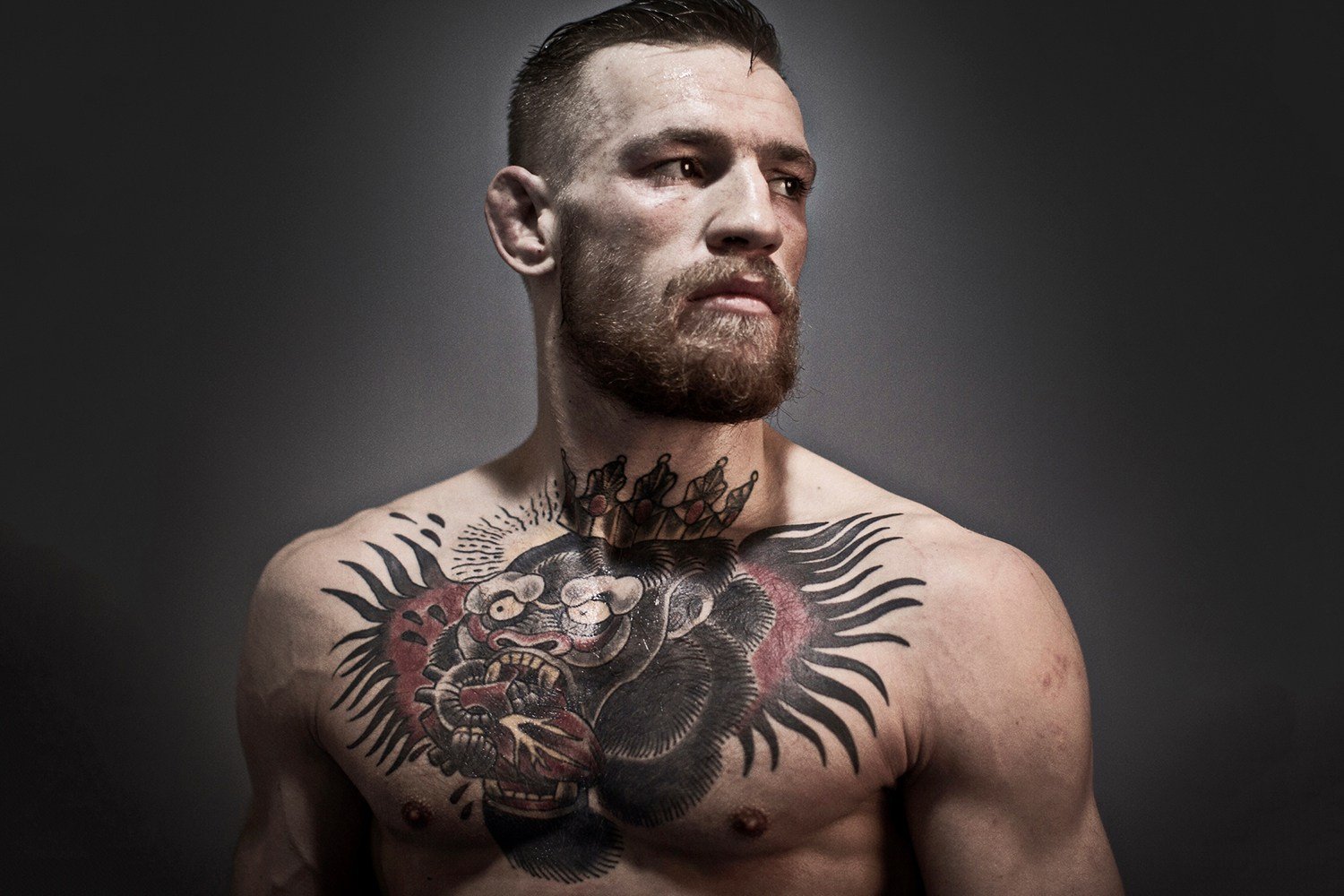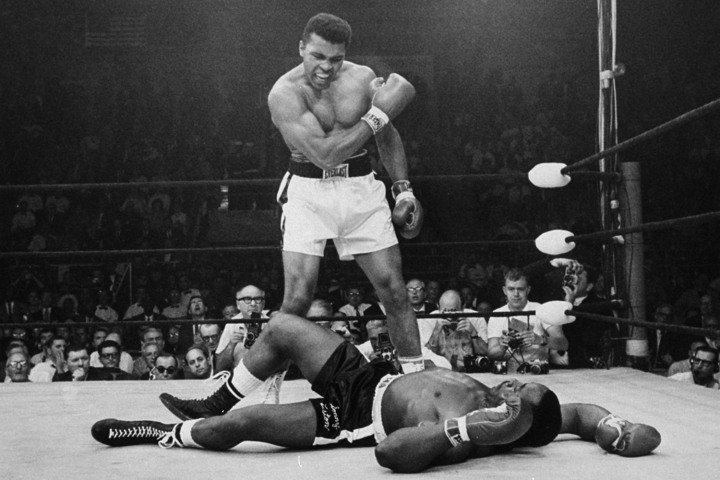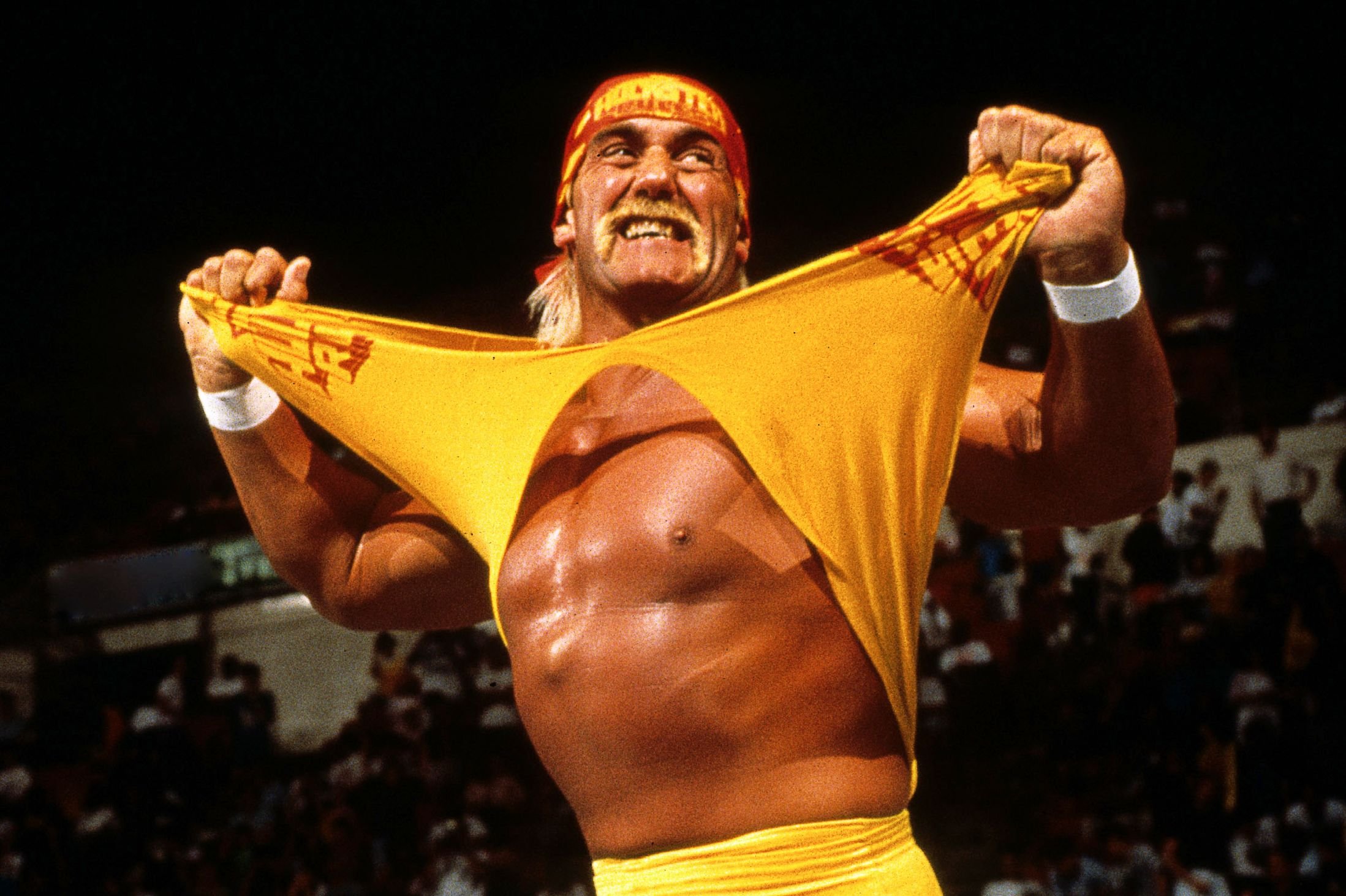
I'm a nerd. I like things like Bitcoin, Economics, Organic Chemistry and all the "higher" art forms. But I have to admit, I also love the UFC. I've been following fight sports for a long time now. For me and many others it all started with The Greatest of All Time: Mohamed Ali.

Here was a guy who beat up the baddest dudes on the planet and he made it look easy. He danced. He talked. And he looked good doing it.
But the sport of boxing can not lay claim to the entirety of what we now call "fight sport." It is somewhat ironic that the other side of that coin is what's considered by many to be "fake": professional wrestling.

Even though these two things seem like completely different animals, they have been intertwined with one another almost since the very beginning. The Greatest himself "fought" Gorilla Monsoon in 1976.
Why the interconnection? Because these are all fighting performances. Contrary to what outsiders may think, fight fans are not interested in senseless violence. We don't simply like seeing two people beat each other up. We like seeing people operating at their highest level in the most extreme conditions: one-on-one combat. Professional wrestling is at one end of the spectrum. It is far more about performance than skilled fighting (which is not to say it doesn't require extreme athleticism). Boxing used to occupy the other end of that spectrum being far more about fighting ability than performance. If you look at pre-Ali fights you can see this clear as day. Before him the prevailing wisdom among fighters was, "Let the fists do the talking." Ali changed all that. He recognized that success in boxing, as in anything, was as much about performing as it was about fighting and, even more importantly, the performance could be leveraged to gain an advantage over your opponent through psychological warfare.
But of course there's more to it than that. We like seeing expert martial artists demonstrating honor, integrity, commitment and respect. But none of these things exist without a story. We don't love Muhammed Ali because he was one of the most skilled boxers in history. We love him because he overcame adversity, because he stood up for his principles, because he took a stand for something he believed in, whether we agreed with it or not. And he was also willing to be the villain when the circumstances called for it. He understood that there were times when it was more important that he be popular than be liked, and there were times when it was more important to be hated than to be free.
Ali The Innovator
What Ali probably gets too little credit for, is being an innovator. Before him most fighters tried to maintain an aura that they were the scariest dudes on the planet. They let their fists, and their managers do the talking. Ali changed all of that. He took inspiration from, no surprise, a professional wrestler named "Gorgeous" George Wagner.
Instead of playing the role our society lined up for him, he broke the mold and did what was best for him and that meant taking control of his public persona and with it the narrative. Instead of trying to be the meanest man on the planet, he created a mix of the craziest, and the smartest. He dazzled us with quick feet and a quicker mouth. He defeated his opponents before even getting into the ring.
As Paul Newman's character in Color of Money said, one has to be a student of human moves. In that movie Vincent was highly skilled, but this usually meant no one would play him and so he couldn't make any money. The role of Paul Newman's character in that movie is to teach his protege Vincent (played by Tom Cruise) the importance of the story you are telling and how that makes all the difference.
But this isn't about Ali, it's about Conor McGregor. Of course, everyone pales in comparison to the People's Champion, and you will be hard pressed to find a single fighter who will even pretend to hold a candle to him. The reason we love him is precisely because people like him are so very rare. Still rare, though slightly less so, are the people who learn from him, who master the art of performance as well as he did, and through some miracle of the universe possess the talent, skill, dedication, and god-given ability to back it up. Conor McGregor is one such person.
I am comparing McGregor to Ali, I am not saying that they are somehow equal. **As a human being, Ali has few equals and their impact is not measured based on what they do inside a stupid ring. **
It's based on the effect they have on the entire world. What I am talking about is, in the grand scheme of things, that trivial portion of time that professional fighters spend focused on their sport. Though in the case of Conor McGregor, that seems to be the majority of his life. What makes a person a great person is what they do when they leave the arena, not what they do inside of it. Floyd Mayweather is an awe inspiring boxer, and the new persona he adopted ("Money" Mayweather) catapulted his career into another stratosphere, leaving his old persona ("Pretty Boy" Floyd) a distant memory. Outside of the ring he is little else.
Conor McGregor, like everyone, is really two people: the real Conor McGregor, the one who spends time with friends and family, chatting, complaining, laughing, crying, and the McGregor he chooses to show to us. The Conor McGregor persona. A brash reflection of the most absurd aspects of our culture, not his. McGregor is Irish, and yet everything about him is just ... so ... American. As his ticket sales show, we love watching ourselves in the mirror. Pretending that his victories are ours, because he places atop his body our symbols of success.
When entertainers rise as fast as he has, we so quickly accept it as a given that the rise was somehow preordained. Inevitable. Nothing could be farther from the truth. Ireland had produced barely any high level mixed martial artists and all of Europe had failed to put forth a single UFC champion. It didn't make sense for the UFC to even look to the country for talent. Before McGregor defeated Jose Aldo (who was undefeated, held the title for 6 years, and defended it 9 times) there were 5 American champions and 3 Brazilian champions. That's it. That ratio of mostly Americans and Brazilians absolutely dominates the sport. McGregor had to get noticed. And this was Conor McGregor:
This simply would not do. But at the same time, this too was Conor McGregor.
Do you see him there? He's not being cocky, he's being confident. He's not being conceited he possesses conviction. He doesn't crave fame, or power, he is in pursuit of excellence. These are the bricks that build a real champion. But as countless have learned since the dawn of man, you can't win if you're not allowed to play the game. But how does one leverage their specific skill sets, their unique circumstances to gain entry and do so without exposing their true self because your true self possesses your true flaws.
Your false self contains only your false flaws.
Ironically, people tend to understand this dynamic in the most unhealthy way. We hide our true selves from those we love out of fear that they will not like what they see. We pretend that we are protecting ourselves from being hurt, all we are really doing is pushing real love farther away. What great competitors understand better than most is that this is exact wrong dynamic. You must reveal your true self to the people around you so that they can keep you grounded and you must show another self to your opponents so that they can't figure out how to beat you.
In battle being able to conceal your weaknesses is an absolute necessity and in order to conceal, you must first see yourself. But how? By committing yourself to doing battle in your chosen profession. Dedicating yourself to the systematic evisceration of what you perceive to be your true flaws. Not the bullshit other people tell you is wrong with you because they don't really know you. You are the only one who is witnessing your whole experience. It's not fair to even expect that of anyone else. You must discover your flaws. That can never be outsourced. And then you must test yourself in battle. We all choose our battlefields, our arenas, our theaters. We test our limits. We experience victory and we take our lumps. Only through combat can we prove, not to others, but to ourselves that we have vanquished our foes. Not the other beings we shared a dance with on stage, but what they represent: proof. Proof that we are capable of looking at ourselves, our true selves, perceiving those parts of us that we wish to change and then willing those changes into existence.
Conor McGregor chose this arena and it is not a forgiving one. There is absolutely no room for error.
Outside of the tragic geo-political warfare we just can't seem to shake, the stakes couldn't be higher. No not the risk of death. The risk of complete domination by your chosen enemy.
But they are not mourning their loss. They're mourning their failure. Their failure to do what was necessary to accomplish their goal. They are traumatized by the revelation of their own delusion. This moment can be catastrophic, but it can also be cathartic. A realization that there is more work to be done with this body, not for someone else, but on yourself. New challenges and hurdles which you need because you love a good challenge.
The UFC is a mature sport. You can no longer luck into being Champion. No one wakes up one day to find themselves capable of standing toe-to-toe with olympians. NCAA champions. Brazilian Jiu Jitsu Blackbelts. Unless that day, of course, is preceded by countless more in which they woke up reaffirming the commitment to mastering themselves and their art. That includes creating a persona that has both commercial and emotional* appeal. Clearly McGregor was not always "Notorious." This persona had to be crafted and as a faithful student of the game I have no doubt that McGregor looked to Ali for guidance. Here he is admitting it:
When Ali passed this is what McGregor tweeted.
Nobody will ever come close to this mans greatness.
— Conor McGregor (@TheNotoriousMMA) June 4, 2016
And if they do, they better wake up and apologise. #RIPAli pic.twitter.com/ED2wgignB2
It seems fairly obvious that another major influence was Floyd Mayweather. Ostentatious displays of wealth were never Ali's thing, but "Money" Mayweather is all about them. It should come as no surprise then that these two are talking about fighting one another. No one seriously believes that these two men could fight each other any time soon. McGregor is still in contract with the UFC and Mayweather is retired. And yet they are both stoking the flames. Then why do it? Because it helps both of their personas. Speaking of Floyd Mayweather, here is talking about how he came up with "Money":
A fighter who came from similar circumstances might have looked unoriginal, and therefore not compelling, but McGregor manages to introduce just enough novelty to make the persona arguably even more compelling and he is one of the first in the sport of MMA to do so. Of course other fighters had personas, but the proof is in the pudding. Ali's persona was so compelling it took the sport to a new level. It helped expand the sport to a whole new audience. Despite the "haters" McGregor has certainly done the same. Those who argue that he doesn't "deserve" what he's gotten, that he's "over-payed," are doing themselves a disservice by ignoring what the market is trying to tell them: winning in life is about a lot more than just how hard you can punch someone in the face.











